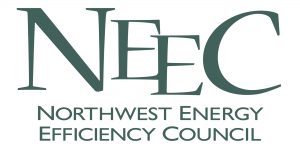The normal legislative funnel process is actively at work in Oregon as concepts and ideas turn into bill language, hearings are held, and some but not all survive. These are some bills that continue to be in play this 2013 session. (To view actual bill language go to http://www.leg.state.or.us/ and search by bill number.)
HB 2801: Over the past month, this bill has become home to three separate ideas. First, the bill changes the way cost effectiveness is determined for projects administered by the Energy Trust of Oregon. The intent of the language is to expand the reference frame for cost effectiveness determination from the individual measure to a whole building. By itself, this is a modest but important shift consistent with the idea of "bundling" measures within a project. The bill however also opens the opportunity for a positive determination by the OPUC to allow, in some situations, an expanded time horizon for creating that bundle. In recognition that many building owners must stage their building improvements, allowing for a longitudinal determination of cost effectiveness would avoid the "penalty" of implementing low cost-high yield measures first (which strains future cost effectiveness of higher cost-lower yield measures within the building). NEEC and its Oregon Caucus have identified this change to cost effectiveness as a priority for 2013.
This bill has two additional features. It requires ODOE to establish a residential energy performance score that would be assigned by qualified construction contractors. ODOE would establish a certification program for construction contractors to designate their competency to conduct an energy audit and assign a performance score. A final feature of the bill requires the Appraiser Certification and Licensing Board establish a certification program for appraisers to prepare an opinion of the value associated with energy efficiency improvements to a building (residential and commercial).
Other bills of interest include;
HB 2105: Issues related to energy facility siting in the state
HB 2795 and 2796: Issues related to net metering
SB 537: Carbon tax study bill
SB 575: Allows a rate of return for some conservation expenditures by regulated utilities
